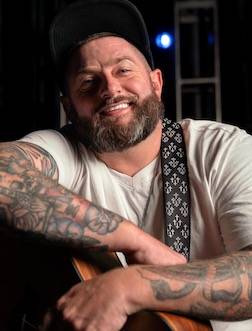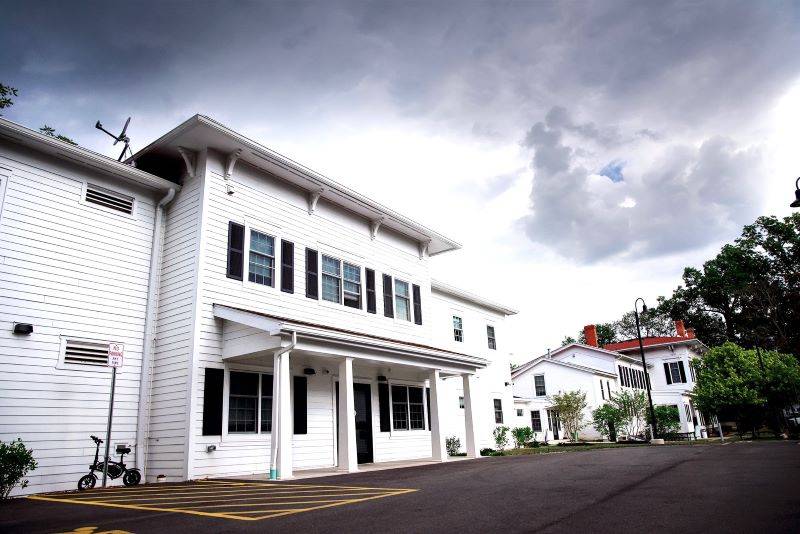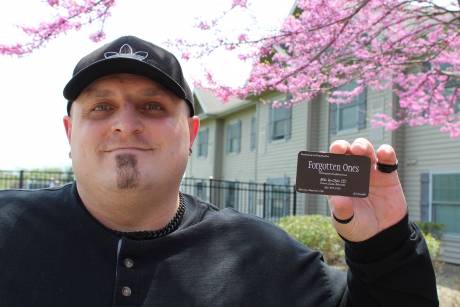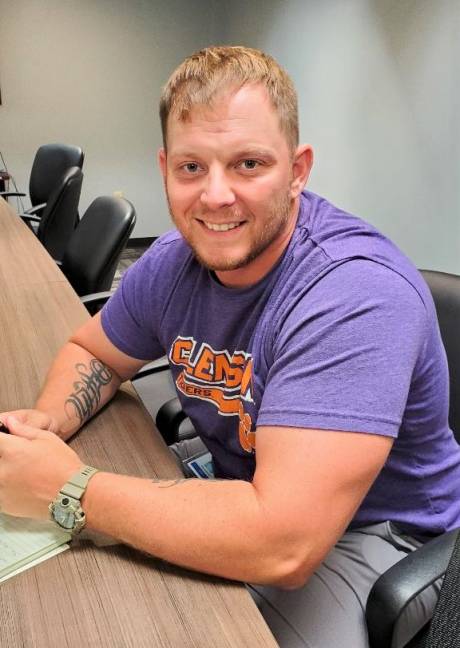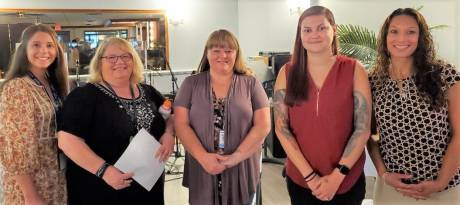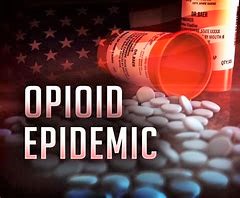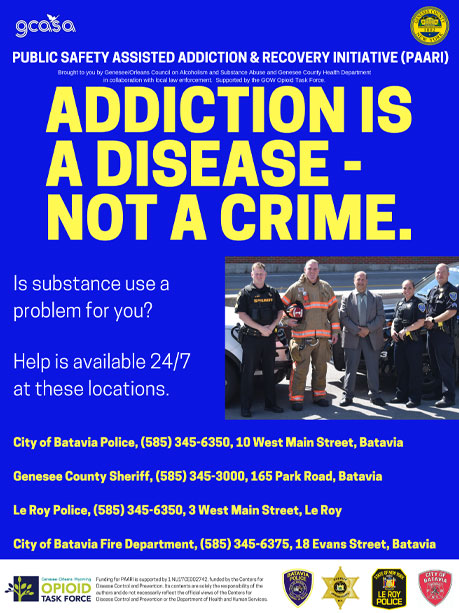Stephanie Campbell has felt the pain of addiction in her life and now — as a key employee at the New York State Office of Addiction Services and Supports in Albany – she works to help others overcome the devastating effects of substance use disorder.
So, on Thursday afternoon, as she toured the new detox center on the Genesee/Orleans Council on Alcoholism and Substance Abuse campus on East Main Street and spoke to the 50 or so people attending an open house and ribbon cutting ceremony, Campbell’s appreciation and gratitude came shining through.
Campbell (photo above) introduced herself as the director of OASAS’ Behavioral Health Ombudsman office, a program that connects people to substance use and mental health treatment.
“But, more importantly,” she said. “My name is Stephanie Campbell and I'm a person in sustained recovery. And what that means for me is somewhere in 1989, someone picked me out of the gutter, and gave me the message of hope. And, and I say that because so many people right now are desperate for that hope and that care and that compassion.”
One of four speakers during the open house, Campbell said that “community and connection” – vital aspects of GCASA’s mission to provide comprehensive services at all stages of substance use disorder – are what turned her life around.
“I can tell you that back in 1989, when someone reached into that gutter and picked me up, and gave me that message of hope, and that compassion and treating me like a human being, I was able to go from being homeless street kid to having three master's degrees, being a professor, and being a director and having an extraordinary career,” she said. “And that's not to brag— there's millions of people just like me — who get the care and compassion that they need.”
She then turned to GCASA Executive Director John Bennett, commending his team as having “some of the most heart-warming, heart-feeling” people on it.
“When someone's in pain, and they look in someone's eyes, they know when that care is there,” she said, “and they know when that connection is there, that compassion -- and that makes all the difference.”
Campbell said hundreds of thousands of people are dying from drug overdose.
“I get the calls from the mothers and fathers on the phone desperately begging for help for their loved ones. I get people who can't get access to the medication and who are incapable and don't know where to go,” she said. “I also get the follow up calls from people who say, ‘If you hadn’t helped, I would be dead today.'”
She said it’s “the heroic folks,” such as the people at GCASA, that are making a difference.
“Talk about essential workers, you guys are saving lives,” she said. “And each life that you save is someone who gets to go back into their community, take care of their kids, be a productive member and pay their taxes.”
Bennett Expresses Thanks to OASAS
Bennett
(photo at right) shared the circumstances that ignited the project around five years ago, citing statistics showing that Genesee County had one of the highest opioid overdose rates in the state at 37 deaths per 100,000 people.
He said that Rob Kent, lead counsel for OASAS at the time, was instrumental in getting the funding for the two-story, 20-bed facility.
“I went to him and said that rural communities just don’t have the services that we need and we have just as many problems in our rural communities, but we just lack the depth that some of the urban communities have in place,” Bennett said. “We have 3 ½ acres here, and could you help me build services that meet the demand that we have in our community?”
Bennett said GCASA received a grant in 2018, but the pandemic put the project on hold until last year. Previously, the agency constructed a methadone clinic across the parking lot on the campus.
“We’re incredibly indebted and thankful to OASAS,” Bennett said.
Speaking from the experience of seeing the negative effects of alcohol abuse years ago in his family, Bennett said he foresees the detox center as a starting point toward ending generational cycles of substance use disorder.
“There weren’t services like this back then to help families, and then what happens is it just goes on for generations and generations. I just want the community and the staff who are going to be working here to know that everything you do – every person who walks through this front door – you’re going to impact their life.”
Bennett sees the detox center as a “building of hope – a wonderful place for people to start their recovery.”
“It’s going to be a place of hope and, hopefully, a place where people can break the cycle of addiction for themselves and their families as the start the beginning of their recovery,” he said.
He also credited the Orchard Park architectural firm of Fontanese Folts Aubrecht Ernst for designing a building that fits with the campus’ historic theme.
“They’ve actually done the last four or five projects for us, and they do a wonderful job in keeping with the historic nature of some of our buildings,” he said. “As you can see, the outside of this building is in keeping with the Atwater House (Community Residence).”
The official opening of the detox center is yet to determined.
Others speakers were Assemblyman Stephen Hawley, GCASA Board Finance Chair Fred Rarick and OASAS Regional Director Colleen Mance.
-- Stephen Hawley presented a certificate of merit to GCASA, thanking the agency for its efforts because substance abuse and addiction “has not gone away as a result of this (COVID-19) pandemic.
“I’m sure that it’s grown more dire,” he said. “The challenges we faced in our lives because of the pandemic have had an especially harsh impact on folks in recovery and those who support them -- all of you here today.
“With circumstances changing constantly in this fight, it’s critical that we remain persistent in our work to raise awareness of ongoing substance abuse and help those who are affected by it.
“This facility will give hope to hundreds of folks struggling with substance abuse over the course of the upcoming years, and I’m certain that it will help save many lives.”
-- Colleen Mance emphasized the importance in affording everyone “the same opportunity to access treatment and a continuum of care.”
“Congratulations to GCASA on this new milestone. I know it’ll be a huge success and we looked forward to the benefits that this will bring to Genesee County and the surrounding area,” she said.
-- Fred Rarick, a defense attorney, noted that many of his clients have families and friends who are affected by substance use disorder.
“You can have one individual in a family ... who has substance abuse issues and that impacts the entire family. It impacts their children who, many times, follow in the footsteps of their parents to become involved in the criminal justice system.
“(GCASA) is on the front lines of what we want to accomplish, and together we can all do it … I think it has come a long way from some of the initial programs. When people take advantage of these programs, they’re less inclined to be out on the streets, committing crimes.”
From left, Colleen Mance, OASAS regional director; Randi Johnson, detox center physician's assistant; Stephanie Campbell, NYS Behavioral Health Ombudsman Office director; Allison Parry-Gurak, GCASA director of Residential Services; John Bennett, GCASA executive director; Fred Rarick, GCASA board finance chair; Assemblyman Stephen Hawley; Kathy Hodgins, GCASA chief clinical officer; City Council members Tammy Schmidt and Eugene Jankowski Jr.
Photos by Howard Owens.
Bennett conducting a tour of the new detox center. Photo by Mike Pettinella.

